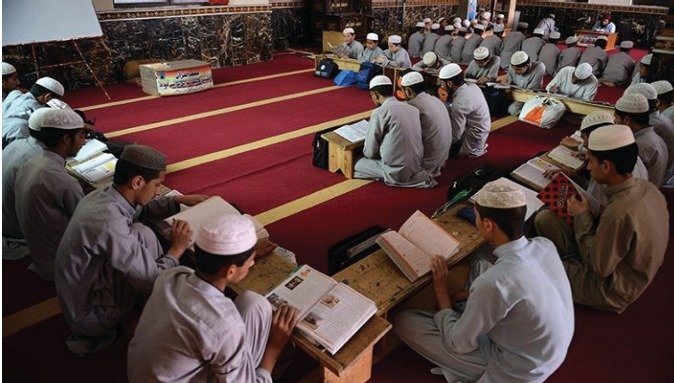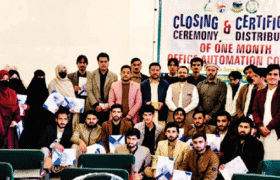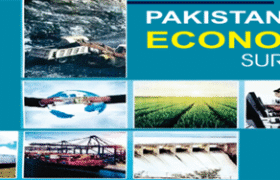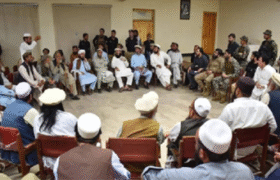SALMAN AHMAD
Madrassas, the Islamic religious seminaries, have long played a key role in the lives of Pakistani people. These institutions have produced many respected scholars of Islamic jurisprudence, Quranic and Hadith studies. However, concerns have grown over the years about the failure of many Madaris graduates to contribute effectively to nation-building due to the absence of contemporary education and life skills. In addition, some madrassas have come under scrutiny for their alleged roles in promoting sectarian hatred, extremism, and intolerance towards minorities, raising red-flags domestically and internationally.
Recognizing the above-mentioned challenges, successive governments in Pakistan have tried to regulate and reform the madrassa system in the country. Despite repeated efforts, ranging from the initiatives under President Ayub Khan to the post, Army Public School NationalAction Plan, progress has been limited. Resistance from religious quarters, lack of political will, and legal complexities have consistently hindered the implementation of meaningful reforms.
In late 2024, Pakistan took a significant legislative step forward. The Societies Registration (Amendment) Act 2024, commonly known as the madrassa registration law, was signed into law by President Asif Ali Zardari on December 29, 2024. This law, passed earlier by the Senate in October, seeks to address long-standing concerns about madrassa oversight. However, despite its passage, the broader conversation about madrassa reforms remains crucial and must extend beyond legal formalities to address deeper educational, ideological, and administrative issues.
Combating Extremist Ideologies Through Education Reform
The threat posed by extremist ideologies remains a pressing national security concern for Pakistan. For over two decades, the country has faced waves of religiously motivated violence, much of it stemming from sectarian divides. Few madrassas, though not all, have been linked to the propagation of rigid interpretations of Islam that promote intolerance and extremist ideologies. Every year, during Moharram-ul-Haram, security forces are deployed en masse to manage the persistent threat of sectarian violence.
One major issue is the binary worldview ingrained in many madrassa students, who are often taught to see issues in terms of absolute right and wrong without the tools to engage in nuanced, critical thinking. This leaves them vulnerable to manipulation by extremist groups, especially when they lack the skills to analyze geopolitical developments or understand alternative perspectives.
Reforms that integrate contemporary subjects, such as social sciences, basic math, languages, and critical thinking, into madrassa curricula can play a transformative role. They can help students develop a more balanced worldview, enabling them to engage constructively with broader society and resist radicalization.
Integrating Madrassa Graduates into the National Mainstream
There is a growing consensus that the inclusion of modern education in madrassas is essential for both the personal development of Madaris students and national progress. At present, the majority of madrassa graduates face limited employment opportunities due to their narrowly focused religious training.
A phased integration of national curricula covering technical education, civic knowledge, and vocational training would allow these students to gain useful skills and access professional pathways.

This transformation could enable them to contribute meaningfully to society, whether as educators, entrepreneurs, or social workers.
Though such integration should ideally have taken place decades ago, particularly when Madaris numbers were manageable and sectarian ideologies had not yet deeply rooted themselves, the opportunity for reform still exists. The state must treat this as a national priority, not only to absorb millions of Madaris’ students into the socialmainstream but also to preempt future threats posed by ideological isolation.
The Role of Regulatory Oversight and Transparency
Effective regulation is a pillar of successful Madaris reforms. Oversight mechanisms are necessary to ensure educational quality, transparency in financial affairs, and the safeguarding of students’ rights. Furthermore, amid Pakistan’s security challenges, it is vital that authorities maintain accurate data on students and staff in Madaris, especially given past incidents where such institutions were linked to militancy.
Pakistan’s previous struggles with the Financial Action Task Force (FATF) over concerns related to money laundering and terror financing further underscore the need for financial scrutiny of Madaris. Without transparency in funding sources, expenditures, and foreign affiliations, suspicions about illicit financial activity persist.
Many Madaris have resisted calls for transparency, particularly regarding their finances and foreign connections. This reluctance makes strong regulatory enforcement essential. While the new legislation does aim to bring Madaris under a formal registration framework, key aspects such as financial auditing and reporting remain contentious and require continuous oversight to avoid loopholes and non-compliance.
Historical Context
Pakistan’s attempt to reform madrassa education dates back over six decades. The earliest efforts under President Ayub Khan were followed by another push during Prime Minister Zulfiqar Ali Bhutto’s tenure in 1975. Neither initiative succeeded, largely due to a lack of institutional commitment and resistance from religious establishments.
A more recent attempt came in 2002 under President Pervez Musharraf through the Deeni Madaris (Voluntary Registration and Regulation) Ordinance. However, the voluntary nature of the program meant most Madaris ignored it. In the aftermath of the 2014 APS massacre, the National Action Plan (NAP) called for robust madrassa reforms, including financial transparency and curriculum standardization. Yet, this too faltered due to political sensitivities and implementation hurdles.
The 2019 agreement between the federal Ministry of Education and the Wafaqul Madaris (a coalition of all major madrassa boards) was a rare consensus-driven effort. It proposed centralized registration, modern subjects, and financial accountability, with the endorsement of top religious leaders. However, this initiative was later undermined by administrative changes and inconsistent follow-through, and its legal foundation was recently nullified by newer amendments.
Challenges
Despite new legislation, significant challenges that includes;
Legal Hurdles: Complications in interpreting existing laws versus new provisions continue to delay implementation.
Community Resistance: Many Madaris fear state overreach and a loss of religious autonomy.
Sectarian Concerns: Critics worry that unregulated Madaris expansion could inflame sectarian tensions.
Political Opposition: Religious political parties, particularly JUI-F, have framed the reforms as attempts to divide the religious establishment.
Operational Reluctance: Even with streamlined procedures like one-window operations, many Madaris remain hesitant to register. while the law is now officially enacted, the road to full implementation is fraught with political, legal, and societal obstacles.
The Way Forward
True Madaris reform will require more than just legislation. It must involve sincere engagement with religious scholars, incentives for compliance, and a transparent regulatory structure that respects religious values while ensuring educational and financial accountability. Reform must strike a balance between preserving the spiritual mission of madrassas and aligning them with national development goals. Ultimately, if Pakistan is to move forward as a stable, progressive nation, it must bring its millions of Madaris students into the educational and economic mainstream, equipping them not only with religious knowledge but with the tools to become informed, productive citizens.




